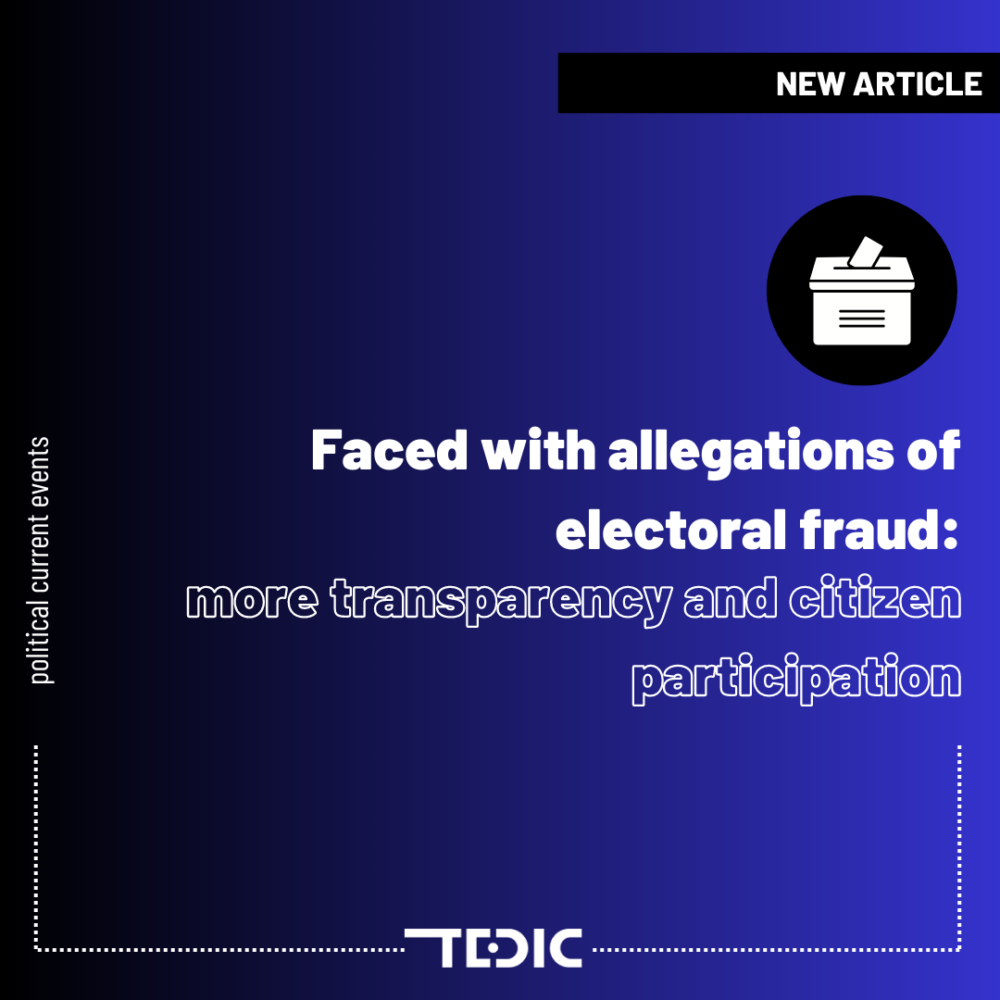
After a historic electoral day with high citizen participation rates, the environment turned abruptly due to allegations of electoral fraud by some political nucleations. Many of the arguments about fraud point to a lack of transparency in implementing electronic voting machines. We launched some reflections from TEDIC, concerned about the current heated environment.
The case
The day after last Sunday’s elections, various candidacies began to distribute a story about distrust in the results on their social networks, strongly pointing to the current electronic voting system in force since 2018. Of all of them, definitely, the one that has acquired an unexpected reach is that of Paraguayo Cubas (colloquially known as Payo) of the National Crusade party.
Payo and his followers denounce a significant lack of transparency in implementing the electronic voting system. They argue that the company Magic Software Argentina (MSA) did not answer the group’s questions. Also, they question elements related to the TREP results transmission system and the disappearance of a “universal CD” from the offices of the ICTs Directorate of the TSJE.
It is important to point out that these complaints triggered a request by the National Crusade a few weeks ago to suspend the elections for a month.
Such questions have quickly escalated into unprecedented nationwide protests alleging fraud. Clashes and violence by police and demonstrators have accompanied these protests.
In a similar way, but in a different tone, both the presidential candidate of the National Concertation, Efraín Alegre, and Euclides Acevedo, candidate of the New Republic Movement, requested that the TSJE manually count 10% of the tables chosen randomly in each Electoral College nationwide and an independent international audit of the computer software. Likewise, Senator Sixto Pereira of the Frente Guasú Front denounced large-scale computer fraud that must be investigated.
Nothing new under the Sun
From TEDIC, since 2018, we have been accompanying the first debates regarding implementing electronic voting machines. We alerted from the beginning about the risk that the devices posed to guarantee public and supervised scrutiny and the high degree of mistrust that this could generate in a polarized electoral result.
On the other hand, during the implementation of the electronic voting machines, we demand greater transparency and citizen participation in the audit processes of the machines offered by the Superior Court of Electoral Justice (TSJE) and a series of recommendations on how to facilitate an independent audit.
As can be inferred, many of the arguments put forward by our organization are indeed similar to some of the claims distributed by Payo and his followers. However, it is essential to differentiate the tone and political moment in which claims, debts and demands for change are voiced.
In that sense, from TEDIC, we see with great concern how certain party personalities, after their political groups accepted the rules of the game, and participated in the audits offered by the TSJE through their technical representatives, launch irresponsible public statements that undoubtedly affirm large-scale electoral fraud, without measuring the consequences and scenarios, that such statements can generate in the democratic system.
It seems legitimate that political forces and groups question an electoral system and the blind spots that can generate doubts. The integrity of a democratic system depends on the degree of confidence towards the rules of the game. All demands and concerns must be considered so that the relevant institutions act accordingly and grant the corresponding guarantees and safeguards.
There are times, moments, and ways that we consider should be followed to adopt criteria that strengthen the democratic system and institutions of Paraguay. The current process proposed by certain actors does not meet such criteria. Depending on the case, the parties and political personalities should review it to safeguard the electoral process. At this time, and in the face of a scenario of clear institutional deteriorations, due to the exponential growth of drug trafficking, we need a responsible opposition that follows due process
On the other hand, from TEDIC, we make a serious call to the elected public authorities and those who will take office next July and August TO:
- Generate an audit process of the electronic voting machines that incorporates more actors and outside the technical representatives of the political parties. The TSJE must include civil society, academia, the private sector, and the technical community must be included. The democratic system and its actors go far beyond political parties.
- Prepare Human Rights impact studies that are public and that result in risk management plans to mitigate possible identified vulnerabilities.
- Review the current conditions of structural inequality on which the electronic voting system is implemented, including harmful electoral practices such as buying and selling identity cards, carousel voting, assisted voting in the dark room, and many other irregularities.
- Evaluate the recommendations of electoral missions at the national and international level that point to urgent electoral system reforms on issues such as the conformation of electoral tables and the need to save voting ballots for independent audits, among others.
- Develop data collection processes that measure the effectiveness of the implementation of electronic voting machines and take into account underlying issues such as the existing digital gap in the country and structural inequalities that affect minorities.
From now on, we make ourselves available to collaborate in this process and, above all, to design a roadmap that reflects the most significant number of voices to improve the electoral system as a whole and for the next municipal elections.
About TEDIC
TEDIC (Technology and Human Rights) is a non-profit organization that defends and promotes Human Rights in digital environments, focusing on gender inequalities and their intersections in Paraguay and the Latin American region.
To learn more about the research on Electronic Voting carried out by TEDIC, visit https://www.tedic.org/en/tag/voto-electronico-en/
